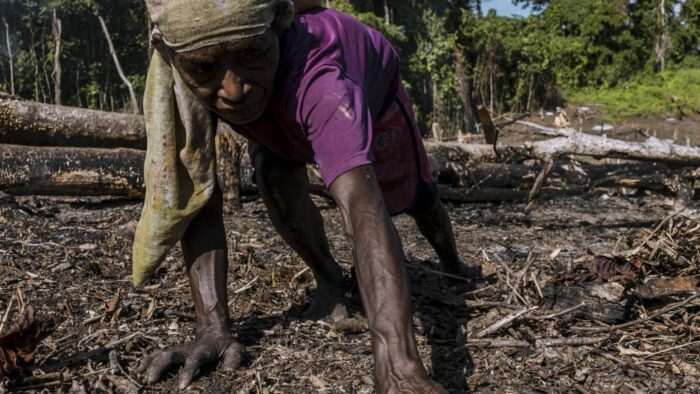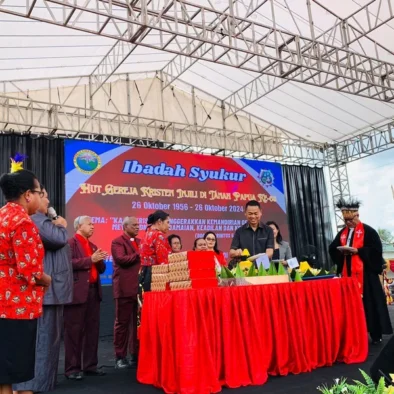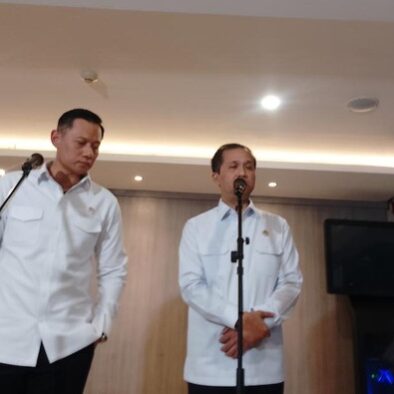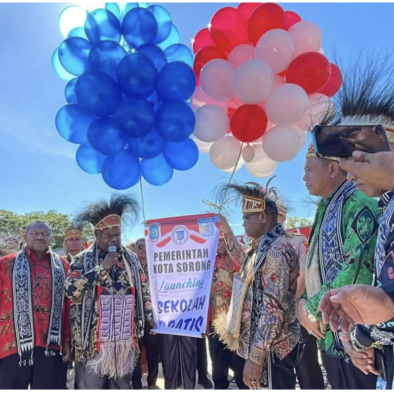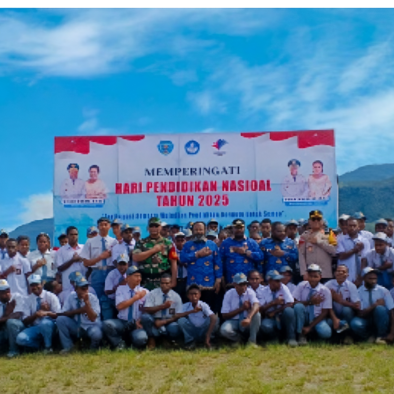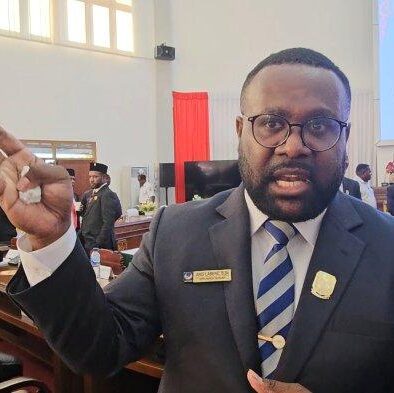Thelandofpapua.com – In Papua, the roles of Indigenous women stretch far beyond traditional responsibilities, positioning them as vital stewards of both their families and the environment.
Known for their significant involvement in managing natural resources, Papuan women are central to preserving their communities’ cultural heritage and sustaining local ecosystems.
However, amid shifting economic landscapes and modern governance, their invaluable contributions are often overshadowed or marginalized.
This article explores the profound impact of these women on their communities and the broader implications of their empowerment.
Frontline Guardians of Natural Resources
Papuan women hold an intricate understanding of their land, having been key providers of food and natural resources for generations.
In regions like the Arfak Mountains and South Sorong Regency, they adapt agricultural techniques that respect the environment, such as shifting cultivation that allows soil to regenerate.
This knowledge ensures food security in areas where large-scale development increasingly limits access to traditional resources.
By cultivating crops without chemicals and allowing the land to rest, they protect the biodiversity that has sustained their communities for centuries.
In areas such as the Biak Islands, Indigenous women participate in reforestation initiatives to address environmental degradation, like those led by the Bersaudara Forest Farmers Group.
These efforts not only restore critical water sources but also strengthen community resilience against climate change. By leading these initiatives, Papuan women are at the forefront of sustainable development in Papua.
Cultural Anchors and Drivers of Daily Life
The importance of women within Papuan society is woven into local customs and traditions. They play essential roles in preserving cultural knowledge and practices, acting as custodians of oral histories, herbal medicine, traditional farming methods, and ceremonial rituals.
Women from tribes such as the Kamoro pass down essential knowledge about natural resources, guiding younger generations in sustainable practices crucial for environmental preservation.
In places like Yawerma Village, women’s daily contributions extend to the economic sphere, where they sell fish, sago, and other locally sourced products in markets, supporting both their families and their communities.
They engage in traditional crafts like weaving and noken (hand-woven bags), keeping these art forms alive as part of Papua’s cultural heritage.
Keepers of Tribal History and Collective Memory
Women in Papua serve as the keepers of tribal memory, preserving detailed accounts of family and community histories.
This responsibility positions them as key contributors in participatory mapping efforts that delineate customary lands. Through their extensive knowledge, they provide context for resolving land disputes and sustaining harmony within the community.
In many cases, men seek guidance from senior women regarding historical land boundaries, underscoring the value of women’s wisdom in maintaining social cohesion.
Their role as knowledge holders is crucial not only for tribal unity but also for safeguarding the natural resources upon which these communities depend. By sharing knowledge of indigenous medicines, food sources, and land use practices, they uphold the traditions that keep their cultural identity alive.
Breaking Barriers to Leadership and Representation
Despite their significant roles, Indigenous women face numerous challenges, from limited infrastructure and healthcare access to socio-political barriers.
In 2020, Papua reported Indonesia’s highest maternal mortality rate, a stark reminder of the need for improved healthcare services for women in these remote areas.
Furthermore, gender inequality remains pronounced; the Gender Empowerment Index (GEI) in Papua and West Papua provinces is below the national average, highlighting a need for enhanced gender equity in education, health, and economic participation.
The inclusion of women in decision-making roles is gradually increasing, with recent policies advocating for women’s representation in Papua’s legislative and community bodies.
For example, the 2021 revision of Papua’s special autonomy law mandates that women hold at least 25% of seats in the Papua House of Representatives and other governing bodies.
Although the current representation is about 15%, efforts are underway to raise this to 30% by 2024, a vital step toward more balanced and inclusive governance.
A landmark achievement in this effort was the appointment of Yustina Ogoney as Head of Merdey District in 2017, a historic milestone for female leadership in Papua.
Her success as an Indigenous leader underscores the potential of women to bridge traditional roles and modern governance, advocating for the preservation of customary lands and the rights of Indigenous communities.
Challenges and Pathways Forward
While Papuan culture traditionally venerates women, modernization and economic pressures have often sidelined their contributions.
Women’s participation in strategic decision-making processes remains limited, and their voices are frequently excluded from conversations that impact their communities’ futures.
Recognizing and amplifying the roles of Papuan women in governance, environmental stewardship, and cultural preservation is crucial to fostering a more inclusive and resilient Papua.
Supporting initiatives that enhance women’s leadership skills and community involvement can help ensure that they are active participants in shaping Papua’s future.
Empowering women in these roles not only benefits their communities but also contributes to the sustainable development of the region.
By strengthening women’s influence in resource management and decision-making, Papua can safeguard its cultural heritage and natural resources for generations to come.
As Papuan women continue to break barriers, their efforts stand as a testament to their resilience and unwavering commitment to their families, communities, and the environment.
Their stories remind us that true progress in Papua is possible only when Indigenous women are respected, empowered, and included in all aspects of development.

